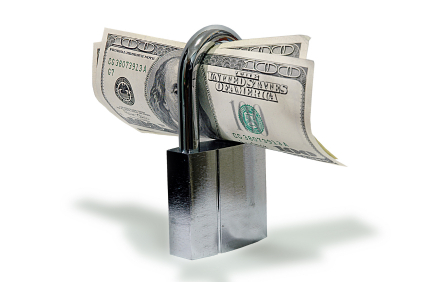
Americans have record wealth, but aren’t spending it
In the economic history of our time, June 6, 2013, ought to occupy a special place. That’s the day the Federal Reserve disclosed that the net worth of American households — the value of what they own minus what they owe — hit $70 trillion, a record that exceeded the previous peak before the 2007-09 financial crisis. Higher stock prices and a long-awaited housing recovery are slowly restoring Americans’ lost wealth. By all rights, this symbolic crossing ought to improve confidence, prompt consumers to spend more freely and increase the economy’s growth.
Maybe it will. But don’t hold your breath.
The “wealth effect” isn’t what it used to be. For those who have forgotten, this refers to households’ tendency to spend some part of their increased real estate and stock market wealth and thereby boost the economy. During the boom years, Americans borrowed lavishly against rapidly appreciating home values. One Federal Reserve study estimated the extra cash at $700 billion annually from 2001 to 2005. Now psychology has changed. Careless optimism has given way to stubborn cautiousness. Wealth gains don’t translate into similar amounts of higher spending.
The breakdown may explain why the Fed’s easy-money policies have, at best, only modestly achieved their ultimate goals: stronger job creation and economic growth. By buying Treasury bonds and mortgage securities, the Fed hoped to lower interest rates and push up the prices of homes, stocks and other financial assets. The money that investors received from selling their Treasury and mortgage securities would flow into these other markets. It can be argued that the Fed succeeded, though no one knows what would have happened if its policies had been less aggressive. In any case, stocks have more than doubled since their 2009 low; and falling mortgage rates, which dropped below 3.5 percent for a 30-year loan, helped revive home sales and prices.
But to realize its growth and unemployment goals, the Fed needed the extra wealth to translate into higher spending. Here’s where the process seems to have broken down. Before the financial crisis, says economist Mark Zandi of Moody’s Analytics, an added dollar of housing wealth might produce 8 cents in extra spending, and an extra dollar of stock wealth, 3 cents. The overall effect was about 5 cents per dollar of new wealth, Zandi says. Now, 2 or 2.5 cents “seems more likely to me.”
Why the change?
One possibility is that increases in household net worth, though impressive, are just recovering lost ground. People may treat these differently from new gains. Indeed, by some measures, all the lost ground hasn’t been recovered yet. Economists at the St. Louis Federal Reserve Bankadjusted the Fed’s figures for inflation and population increases since 2007. By this math, average net worth is about 90 percent of its 2007 peak.
For housing alone, the contrast is starker. Consider some numbers. Prices are up 12 percent over the past year, reported the market-data firm CoreLogic. Still, they’re 22 percent below their 2006 peak. Or take the number of “underwater” homes, for which the mortgage exceeds the price. Since late 2009, they’ve dropped by almost 2.5 million. Good news. But 9.7 million remain. That’s almost 20 percent of all homes with a mortgage, says CoreLogic.
Aging may also weaken the wealth effect, says Susan Sterne of Economic Analysis Associates. The more that retirees and near-retirees worry about exhausting their savings, the more cautiously they spend, she argues.
But what really subverted the wealth effect was the financial crisis and Great Recession. People better appreciate that houses and stocks are risky assets, says economist Paul Edelstein of IHS Global Insight. They’re more reluctant to borrow and spend against them, because today’s gains could become tomorrow’s losses. Americans became more defensive, he says. Jobs are scarce; incomes are sluggish. People are not just paying down debt; they’re building barriers against hazards they can’t foresee.
There has been a stunning shift in behavior, notes Zandi. In 2006, at the peak of the housing boom, almost 90 percent of homeowners who were refinancing mortgages increased the size of their loan, according to data from Freddie Mac; they were borrowing against higher housing values. In 2012, 83 percent of refinancing homeowners either didn’t change the mortgage amount or lowered it. They were striving to pay off debt.
So the wealth effect varies by time and circumstances. Now it is a casualty of the financial crisis and Great Recession. We have yet another example of risk aversion dominating the economy. People eager to borrow have faith in the future; people eager to repay debts worry about the future. We are prisoners of psychology, which can change but is hard to manipulate. That is the predicament for policy and politics.
Read more from Robert Samuelson’s archive.
Read more on this topic:
No comments:
Post a Comment